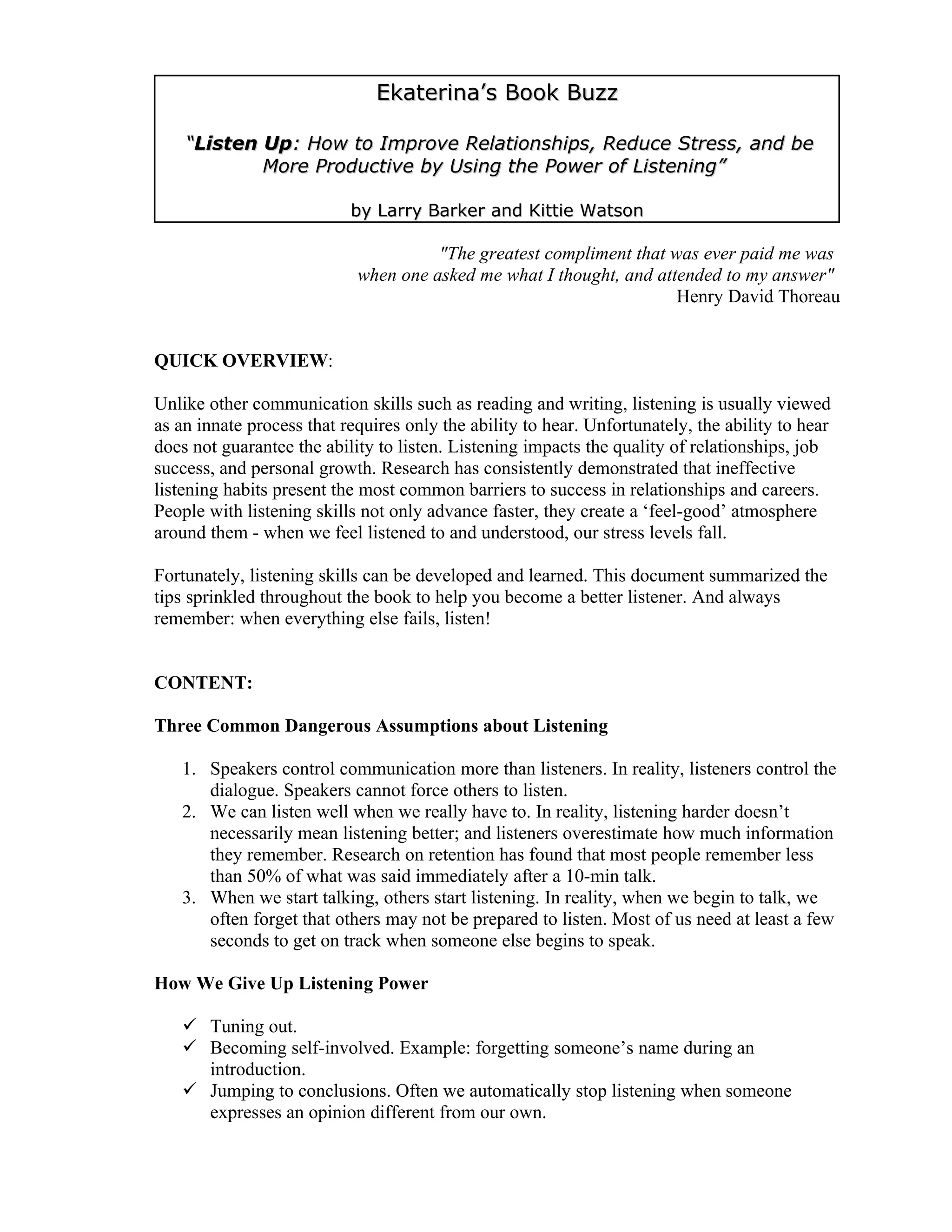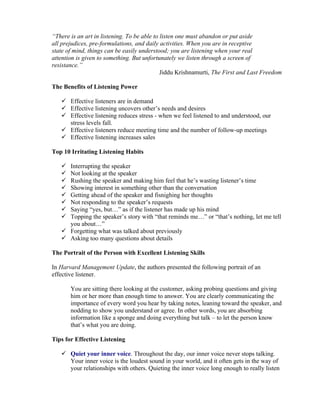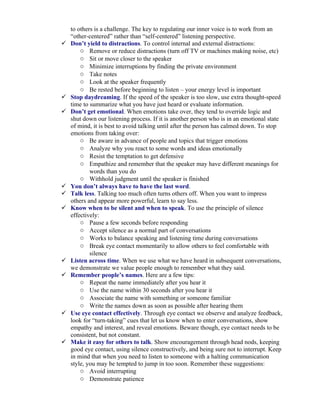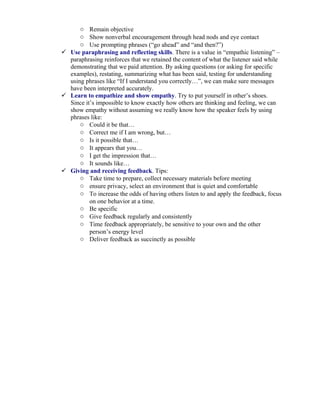The document summarizes key insights from the book 'Listen Up' by Larry Barker and Kittie Watson, highlighting the importance and impact of listening on personal and professional relationships. It identifies common misconceptions about listening, lists effective listening skills, and presents strategies to enhance listening abilities, emphasizing that listening can be developed as a skill. The document also addresses the detrimental habits that hinder effective listening and provides practical tips for fostering better communication.



